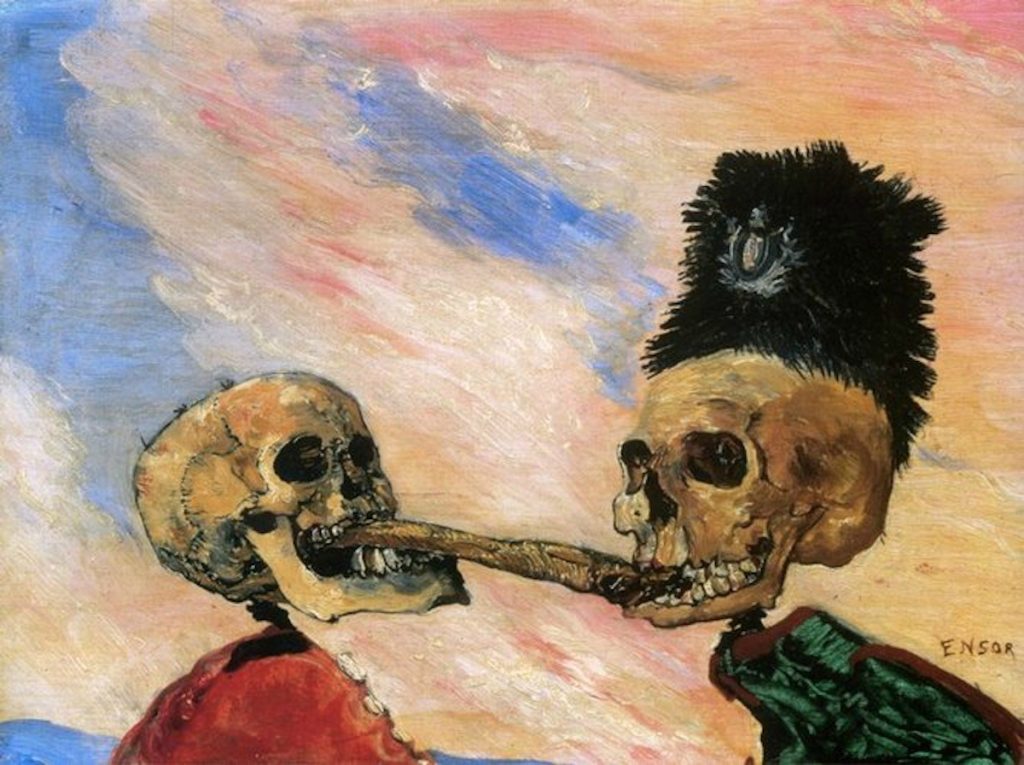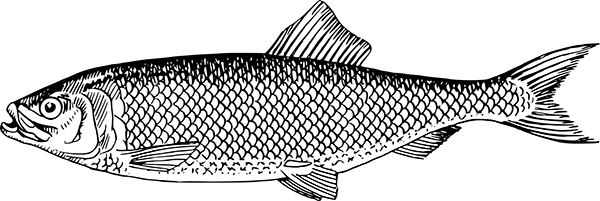A French-speaking smoked herring of Normandy and Belgium, le hareng saur can mean red herring, bloater (le bouffi) and kipper (le kipper)
HARENG SAUR

Le Hareng Saur is French/Belgian smoked herring, traditionally made with the small, inshore Channel herrings. These days, as with many British kipper smokers, hareng saur producers tend to use the larger herrings supplied by Norwegian fisheries.
In Seafood (2001) Rick Stein describes it as the French equivalent of kippers, gutted and salted aboard the boat then smoked at a factory close to the landing point. The term can be used for these (separately referred to as les kippers), but it also covers le bouffi, ungutted, salted and smoked, a French translation of bloater (the English word derives from the Swedish blöta, meaning steeped or soaked). Under the same broad heading, J C David of Boulogne produces ‘traditional’ salted and smoked fillets of Channel herring.
As a term Hareng saur originally meant what in England is known as red herring, simply meaning smoked herring, heavily salted and smoked for several weeks. It has moved to cover the milder cures which were made viable through the improved transport of the Railway Age. It has been translated as kipper and as bloater. Strictly speaking, you should first check exactly which product you’re talking about or simply translate it as smoked herring.
It is sometimes erroneously translated as pickled herring, probably based on the assumption that saur means sour, as in sauerkraut, but it doesn’t. In English it is often pronounced like a French-accented sour, which doesn’t help. It should be pronounced with the French au, as in aux barricades! (to the barricades!).
Saur actually means reddish-brown, although the word has fallen out of use elsewhere – it may derive from a word for sorrel which has also dropped out of currency. Dating, at least, from Norman times, there was a strong cultural exchange with English smoking traditions: whether red or saur came first, it just refers to the colour of heavily smoked herring.
It tends to be a little bit more heavily salted than contemporary kipper or bloater cures. There are a number of herring fairs in Normandy during November (when the Channel herring season begins). The one at Fécamp has its roots in a medieval fair which rivalled Yarmouth’s. There’s also a fisheries museum there: checking out!
Note: Previously, monologue/poems by Charles Cros and J K Huysmans, both titled Le Hareng Saur, were included in this entry. As so much more information came to light about Cros and his poem, and as another Hareng Saur poem by Jen Richepin came to light, these now have their own entry, Hareng Saur Monologues.
See also
- AQUINAS, ST THOMAS
- BATTLE OF THE HERRINGS (1429)
- BLACK HERRING
- BLOATER
- BUCKLING
- CANNING
- DRIED HERRING
- DUMAS ON HERRING
- EYVIND SKÁLDASPILLIR
- FASTING
- FISH FINGERS
- GOLDEN HERRING
- GREEN HERRING
- HARENG SAUR MONOLOGUES
- HERRING BUSS (TUNE)
- KIPPER
- LOCKMAN, JOHN
- LOCKMAN’S VAST IMPORTANCE
- MARTYRED SAINT
- NASHES LENTEN STUFFE
- OLIVIER, LAURENCE
- PICKELHERING
- PROCESSION OF THE HERRINGS
- RED HERRING
- RED HERRING JOKE, THE
- RING NET: WILL MACLEAN
- ROLLMOPS & BISMARCKS
- SALT
- SARDINES
- SCHMALTZ HERRING
- SILVER HERRING
- WEDGWOOD
- WHITE HERRING
- WILLIAMS, WILLIAM CARLOS: FISH
